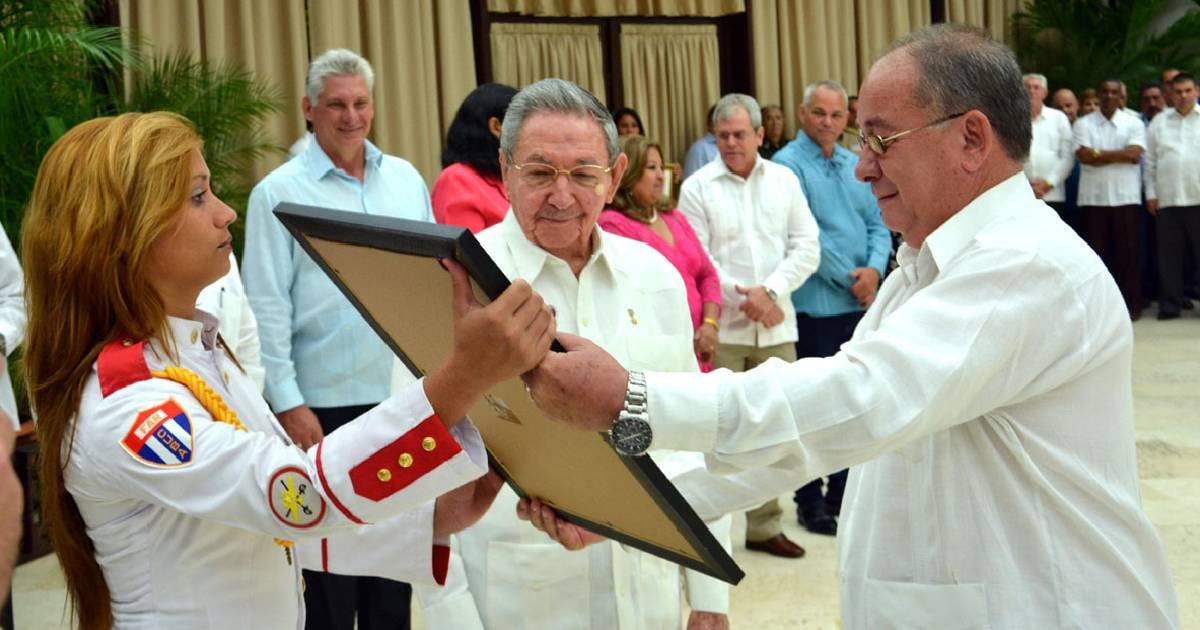
Related videos:
The Cuban regime, in yet another move by its leadership, announced the exclusion of Lázaro Expósito Canto from the Central Committee of the Communist Party (PCC), one of its established leaders.
The release of Expósito Canto was announced during the IX Plenary of the organization, which began this Thursday in Havana.
After acknowledging his career in the PCC, particularly as secretary in the provinces of Granma and Santiago de Cuba, the Cuban communists emphasized his "unlimited dedication, sensitivity, ability to unite collective will, creativity, and loyalty," according to a brief report by the official media outlet Cubadebate.
Expósito, who served as the first secretary of the PCC in Santiago de Cuba for more than a decade, was known for his strong leadership strategies in the province, although he garnered the admiration of many residents there.
However, in March 2019, an incident was reported involving him when a mother from Santiago, Olga Yaité Sauqué Medina, with four children and facing serious housing issues, knelt before Expósito Canto, urgently seeking help due to the imminent risk of her home collapsing.
According to the report, the then first secretary remained "paralyzed" and did not respond to the woman's plea. Later, his secretary promised to send a commission to assess the situation, but, according to Sauqué Medina, that commission never arrived.
In October 2021, Expósito Canto was relieved of his position in that eastern region and replaced by José Ramón Monteagudo Ruiz. According to official sources, this decision was made due to his extensive experience, assigning him other tasks.
The ruler Miguel Díaz-Canel indicated that Expósito would take on responsibilities related to the life and work of Fidel Castro and the history of the Revolution in the eastern provinces.
The IX Plenary of the PCC, scheduled for December 12 and 13, will review the implementation of its agreements, the accountability of the Political Bureau, and assess the government's projections to correct distortions and boost the economy, according to Cubadebate.
They will also analyze the proposal for the State Economic and Budget Plan for 2025, the support for state and non-state economic actors, and the assessment of deviations and negative trends in Cuban society, along with their respective action proposals.
Frequently Asked Questions about the release of Lázaro Expósito Canto from the Central Committee of the PCC
Why was Lázaro Expósito Canto released from the Central Committee of the Communist Party of Cuba?
Lázaro Expósito Canto was released from the Central Committee of the Communist Party of Cuba during the IX Plenary of the body. Although his career was acknowledged, the decision reflects a shift in the party's leadership, possibly related to the need to adjust political strategies in the context of an economic and social crisis in Cuba.
What impact does the release of Lázaro Expósito Canto have on Cuban politics?
The departure of Expósito Canto from the Central Committee may signal changes in the Cuban regime's strategy in response to the country’s economic and social crisis. This could reflect an internal restructuring aimed at addressing current criticisms and challenges, although the effectiveness of these changes is questionable due to the ongoing lack of tangible results in improving living conditions in Cuba.
What topics were discussed at the IX Plenary of the Central Committee of the Communist Party of Cuba?
In the IX Plenary of the Central Committee of the Communist Party, crucial issues were addressed regarding the economic and social future of Cuba, including the fulfillment of agreements, accountability of the Political Bureau, and the evaluation of government projections to correct distortions and promote the economy. The State's Economic and Budget Plan for 2025 was also discussed.
What was Lázaro Expósito Canto's career path in the Communist Party of Cuba?
Lázaro Expósito Canto was a prominent leader in the Communist Party of Cuba, recognized for his role as the first secretary in the provinces of Granma and Santiago de Cuba. While he was admired for his management, he also faced criticism for incidents such as his lack of response to a mother in an emergency situation in 2019. His involvement in the party illustrates the internal complexities of the Cuban regime.
Filed under: